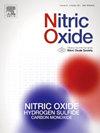硝酸盐和亚硝酸盐摄入量与胃食管癌风险之间关系的系统回顾和剂量反应荟萃分析。
IF 3.2
2区 生物学
Q2 BIOCHEMISTRY & MOLECULAR BIOLOGY
引用次数: 0
摘要
目的本系统综述和剂量反应荟萃分析旨在评估硝酸盐和亚硝酸盐的膳食摄入量与胃癌和食道癌风险之间的关系:方法:检索MEDLINE、Scopus、Embase、Web of Science、Proquest和Google Scholar,检索期至2024年4月1日。文章由两名独立研究人员根据纳入和排除标准进行筛选。提取的数据包括研究设计、暴露类型和结果、每层硝酸盐或亚硝酸盐的摄入间隔、每层摄入量关系的 OR/RR/HR、总样本量以及胃癌或食管癌病例数。通过 GRADE 方法对证据的确定性进行评级。汇总的几率比、风险比和剂量反应分析是通过 Stata 17.0 版计算得出的。最佳拟合剂量反应模型通过线性和非线性的 P 值进行评估。研究异质性通过 I2 和 Q 检验进行评估:我们发现了 2124 项非冗余研究,其中 234 项可能相关。有 18 篇文章符合纳入标准并被纳入综述。荟萃分析结果显示,在病例对照研究(OR = 1.29,95 % CI = 1.09-1.52,P 值 = 0.001,I2 = 1.91 %)和队列研究(RR = 1.17,95 % CI = 1.00-1.37,P 值 = 0.04,I2 = 0.00 %)中,亚硝酸盐摄入量与胃癌之间存在显著的正相关关系。此外,病例对照研究显示,硝酸盐摄入量与胃癌发病率之间存在不显著的反比关系(OR = 0.71,95 % CI = 0.50-1.01,P 值 = 0.06,I2 = 74.89 %),队列研究显示,硝酸盐摄入量与胃癌发病率之间存在不显著的反比关系(RR = 0.89,95 % CI = 0.73-1.09,P 值 = 0.27,I2 = 0.00 %)。病例对照研究也表明,亚硝酸盐摄入量与食管癌发病率之间无明显相关性(OR = 1.48,95 % CI = 0.91 至 2.42,P 值 = 0.12,I2 = 0.001 %)。亚硝酸盐与胃癌呈线性相关(线性 P 值 = 0.001)。硝酸盐与胃癌关系的最合适拟合模型是片断线性模型和自然多项式回归(二次)模型(P 值分别为 0.003 和 0.005)。没有明显的发表偏倚:根据这项荟萃分析,在采用线性回归模型的病例对照和队列研究中,亚硝酸盐摄入量高与胃癌风险增加有关,而在病例对照或队列研究中,膳食硝酸盐摄入量与胃癌风险无关。这些研究结果尚无定论,需要在未来的前瞻性研究中通过可靠的方法和对潜在混杂因素的调整加以证实。本文章由计算机程序翻译,如有差异,请以英文原文为准。
A systematic review and dose‒response meta-analysis of the association between nitrate & nitrite intake and gastroesophageal cancer risk
Objective
The objective of this systematic review and dose‒response meta-analysis was to assess the associations between the dietary consumption of nitrate and nitrite and the risk of gastric and esophageal cancer.
Methods
MEDLINE, Scopus, Embase, Web of Science, Proquest, and Google Scholar were searched until April 1, 2024. Articles were selected by two independent researchers on the basis of the inclusion and exclusion criteria. Data regarding the study design, type of exposure and outcomes, intervals of intake of nitrate or nitrite in each layer, OR/RR/HR of the relationship for each layer of intake, total sample size, and number of cases of gastric or esophageal cancer were extracted. The certainty of the evidence was rated via the GRADE method. The pooled odds ratios, risk ratios, and dose‒response analyses were calculated via Stata version 17.0. The best-fit dose‒response model was assessed by the P value for linearity and nonlinearity. Study heterogeneity was assessed via the I2 and Q tests.
Results
We found 2124 nonredundant studies, 234 of which were potentially relevant. Eighteen articles met the inclusion criteria and were included in the review. The results of the meta-analysis revealed a significant positive association between nitrite intake and gastric cancer in both case‒control studies (OR = 1.29, 95 % CI = 1.09–1.52, P value = 0.001, I2 = 1.91 %) and cohort studies (RR = 1.17, 95 % CI = 1.00–1.37, P value = 0.04, I2 = 0.00 %). In addition, case‒control studies revealed a nonsignificant inverse association between nitrate intake and gastric cancer incidence (OR = 0.71, 95 % CI = 0.50–1.01, P value = 0.06, I2 = 74.89 %), and cohort studies (RR = 0.89, 95 % CI = 0.73–1.09, P value = 0.27, I2 = 0.00 %). Case‒control studies also revealed no significant correlation between nitrite intake and esophageal cancer incidence (OR = 1.48, 95 % CI = 0.91 to 2.42, P value = 0.12, I2 = 0.001 %). Nitrites correlated linearly with gastric cancer (linearity P value = 0.001). The most appropriate fit models for the relationship between nitrate and gastric cancer were both piecewise linear and natural polynomial regression (quadratic) models (P values = 0.003 and 0.005, respectively). There was no significant publication bias.
Conclusion
According to this meta-analysis, high consumption of nitrites was associated with an increased risk of gastric cancer in case‒control and cohort studies with a linear regression model, and dietary nitrate intake was not associated with the risk of gastric cancer in either case‒control or cohort studies. These findings are inconclusive and require confirmation in future prospective studies with robust methodologies and adjustments for potential confounders.
求助全文
通过发布文献求助,成功后即可免费获取论文全文。
去求助
来源期刊

Nitric oxide : biology and chemistry
生物-生化与分子生物学
CiteScore
7.50
自引率
7.70%
发文量
74
审稿时长
52 days
期刊介绍:
Nitric Oxide includes original research, methodology papers and reviews relating to nitric oxide and other gasotransmitters such as hydrogen sulfide and carbon monoxide. Special emphasis is placed on the biological chemistry, physiology, pharmacology, enzymology and pathological significance of these molecules in human health and disease. The journal also accepts manuscripts relating to plant and microbial studies involving these molecules.
 求助内容:
求助内容: 应助结果提醒方式:
应助结果提醒方式:


